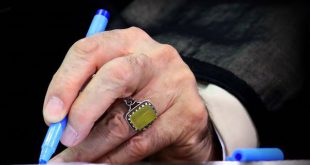Islam & Liberty Network (ILN) announces 6th International Conference on Islam & Liberty – Building an Islamic Case for Open Markets on 14th-15th November 2018, being held at and supported by Iqbal International Institute of Research and Dialogue, Islamabad.
Islam & Liberty Network (ILN) is a global platform of researchers and academics building knowledge and expertise on the Islamic notions of economic, political and religious liberties. Its flagship event is an international annual conference which brings together academics and researchers to present and discuss papers on the current discourse on Islam, society and the world at large under the over-arching theme of Islam and liberty. The conference also helps to build the capacity of scholars and researchers working on Islam.
We have organised five international conferences since 2012. The most recent conference Democratic Transitions in the Muslim World was organised in Kuala Lumpur on 27-28 November 2017 at the International Institute of Advanced Islamic Studies Malaysia. Proceedings and papers from these conferences are available here: http://istanbulnetwork.org/annual-international-conferences/.
Important Dates
Paper Submission: 31st August 2018
Conference Date: 14th-15th November 2018
Venue: Islamabad, Pakistan
Website: islamandlibertynetwork
Islam & Liberty Network )ILN( announces 6th International Conference on Islam & Liberty – Building an Islamic Case for Open Markets on 14th-15th November 2018, being held at and supported by Iqbal International Institute of Research and Dialogue, Islamabad.
Iqbal International Institute for Research & Dialogue (IRD) is a think tank and a constituent unit of the International Islamic University Islamabad. The IRD was originally established at Lahore as a global centre of excellence in Islamic Studies to encourage interdisciplinary approaches to the study of contemporary Islamic thought with particular emphasis on areas such as human rights, rule of law, pluralism, tolerance, democracy, Islam and the West, interfaith dialogue, and Islamic responses to extremism and violence.
In his book, “Early Islam and Birth of Capitalism”, Benedikt Koehler (2014), has argued that the foundations of capitalism as an economic system were sowed in the fifteenth century interactions between Arab and Sicilian traders in Italy. The cities of the vast Muslim empire were hotbeds of free market and open trade. It is reported that the Prophet Muhammad proscribed price fixing and state intervention in price setting. It is also reported that the Prophet honoured all trade pacts with enemy tribes even during war, except transactions related to weapons, as he probably saw trade as critical to human life and civilisation. It is therefore quite ironic that in the global community of Muslims that he founded, today there is scant understanding about the Islamic concepts of open trade and a market economy. This is not helped by the fact that almost all scholars of Islamic Economics have generally avoided the question of prosperity and wealth creation and have instead used their energies to talk about interest free banking and wealth distribution.
In his essay, “The Libertarian Character of the Islamic Economy” (2013), Ali Salman has argued that “mainstream Islamic economists treat distributive justice as a touchstone of economic policy. Like socialists, these economists would hold the market responsible for poverty and inequality. They view private ownership as exploitative.” He has further argued that “[W]hile shari’a calls for the establishment of an order of economic freedom based on mutual consent and stringent consumer protection measures, the modern discipline of Islamic economics seems to have drifted in the opposite direction. With few exceptions, mainstream Islamic economics prefers to discuss poverty instead of wealth creation, income differences rather than prices, and the role of the state rather than the role of the market.”
ILN 6th Conference is an attempt to re-discover the original tenets of economic freedom as propounded by the Quran and Sunnah.
These tenets constitute the main themes of the conference;
- Voluntary Exchange
- Waqf: Concept of Welfare in Islam
- Consumer Protection
- Enforcement of Contracts
- Approached to Inequality
- Profit and Wealth Creation
- Price Freedom
- Free Trade
- Sanctity of Private Property Rights
- Size and Role of Governments in Islam
- Islam and Financial and Capital Markets
- Fiat or Gold: Basis of Currency in Islam
- Banking Interest and Islamic Alternatives
The conference organisers believe that a reasoned and authentic discussion on the foundations of open markets in an Islamic context will help to build a better understanding of economic liberty amongst the Muslim intelligentsia. It will thereby influence the public at large, thus contributing towards peace and prosperity in different parts of the world where Muslim believers get inspiration from Islam to define their worldview. This is an open call to researchers, academics and experts to send their abstract for consideration in the ILN 6th International Conference “Building an Islamic Case for Open Markets” using following guidelines.
INSTRUCTIONS FOR CONTRIBUTORS:
• The abstracts and papers should follow APA referencing style and British English.
• Abstracts should be around 200-300 words. The Abstract should clearly establish a relationship between the planned paper and one or more themes as announced.
• The accepted papers should be of 4,000- 6,000 words and should not have been published or presented elsewhere. They should clearly establish the author’s opinion regarding the identified themes and should follow normal academic standards.
• Referenced/cited text should not exceed 15% of the paper.
• The papers presented in the Conference will be published in the proceeding volume.
• Joint submissions are acceptable.
• Travel grants (international) are available for authors of top 15 papers selected for the conference.
• Travel grants (domestic) are available for top 10 papers selected for the conference.
• Authors will also be provided with local hospitality.
• Interested authors are requested to send their bio-note (maximum of 50 words) and abstract to support@islamandlibertynetwork.org by 31st August 2018.
 Ijtihad Network Being Wise and Faithful Muslim in the Contemporary World
Ijtihad Network Being Wise and Faithful Muslim in the Contemporary World
